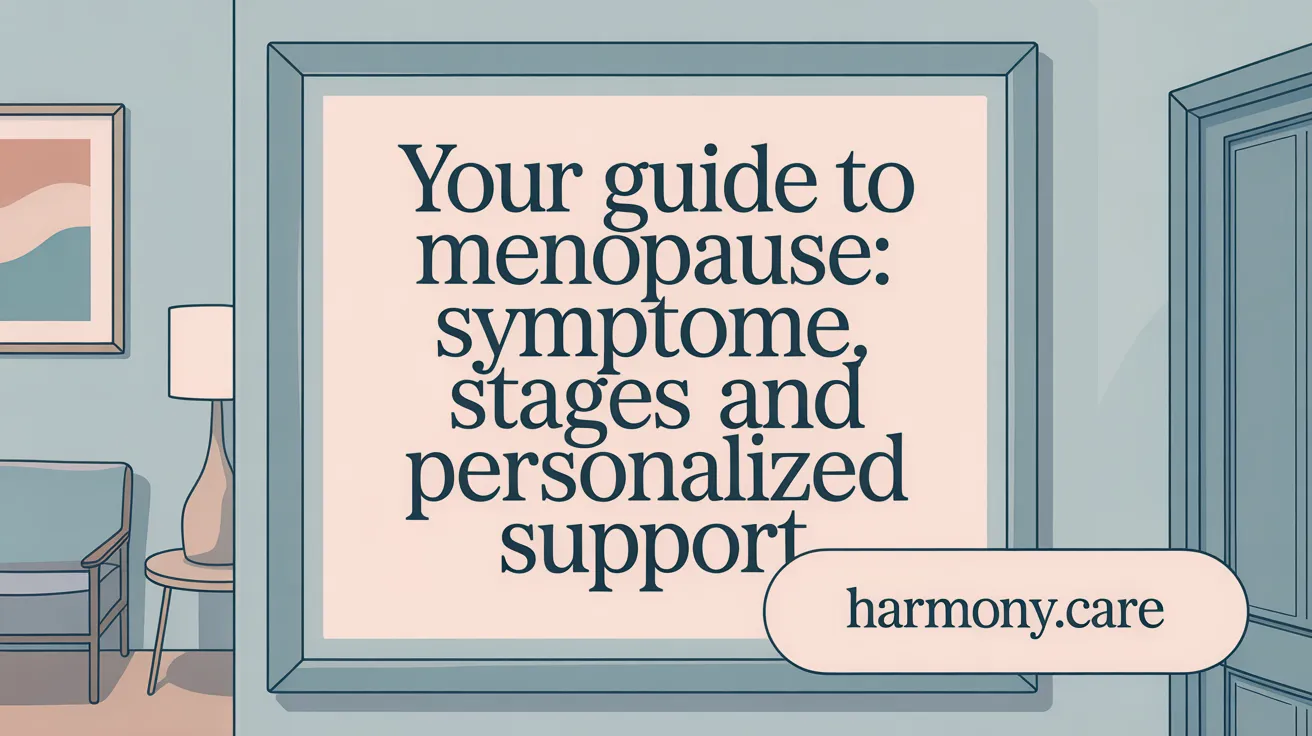Introduction: A New Era in Menopause Management
Understanding Menopause and Its Symptoms
Menopause typically occurs between ages 45 and 55, marking the end of menstrual cycles after 12 consecutive months without periods. This natural transition involves significant hormonal shifts, especially declining estrogen levels, which can trigger a range of symptoms including hot flashes, night sweats, mood swings, sleep disturbances, vaginal dryness, and cognitive changes.
Embracing Integrative, Holistic Care
While conventional menopausal hormone therapy (MHT) remains effective for many, growing numbers of women seek personalized care that blends traditional medicine with holistic practices. Integrative approaches consider physical, emotional, and social well-being, acknowledging that menopause impacts the whole person. Lifestyle modifications, stress management, nutrition, exercise, and mind-body techniques all support this broader vision of wellness.
Combining Tradition and Innovation
Today’s menopause management goes beyond single therapies by combining evidence-based herbal supplements, such as black cohosh and phytoestrogens, with advanced medical options like bioidentical hormone replacement and innovative non-hormonal treatments. Practices like acupuncture, mindfulness, and guided imagery complement pharmacological treatments to address symptoms comprehensively. This patient-centered model empowers women to navigate midlife with confidence and balanced health.
Understanding the Menopausal Transition: The Biological and Holistic Framework

What are the stages and key symptoms of menopause?
Menopause is a natural biological transition typically occurring between the ages of 45 and 55, with the average onset around 51. It unfolds through three stages:
- Perimenopause: Begins in the mid-40s, lasting 4 to 10 years. Hormone levels fluctuate, causing symptoms like hot flashes, night sweats, mood swings, sleep difficulties, and vaginal dryness.
- Menopause: Defined retrospectively after 12 consecutive months without menstruation, marking the end of reproductive cycles.
- Postmenopause: The years following menopause where symptoms may ease, but health risks such as decreased bone density and increased cardiovascular disease become more significant.
Common health concerns alongside symptoms include osteoporosis, cardiovascular risk, cognitive changes, and emotional challenges (Understanding Menopause).
Why is a holistic and patient-centered approach important in menopause care?
Menopause impacts physical systems beyond reproductive health, including bone, heart, brain, and skin. Equally important are psychological and social dimensions, which influence symptom experience and quality of life.
A holistic model addresses these interconnected aspects by:
- Emphasizing multi-disciplinary team involvement—gynecologists, endocrinologists, nutritionists, exercise counselors, and mental health professionals (Holistic management of menopause).
- Prioritizing personalized care that respects individual preferences, history, and lifestyle (Personalized menopause care approaches).
- Supporting shared decision-making, empowering women to actively participate in treatment planning (Shared decision-making in menopause care).
- Integrating lifestyle changes, natural therapies, mind-body practices, and conventional treatments as suited (Integrative natural health solutions).
This comprehensive framework improves symptom management, functional well-being, and long-term health outcomes, supporting women through this complex transition with empathy and evidence-based strategies (Integrative Medicine for Menopause).
Evolving Role of Hormone Therapy: Science, Safety, and Personalization

What benefits and risks are associated with Menopausal Hormone Therapy?
Menopausal Hormone Therapy (MHT) remains a cornerstone for managing menopausal symptoms such as hot flashes, night sweats, vaginal dryness, and mood changes. Beyond symptom control, MHT can improve metabolic health markers like fasting insulin and LDL cholesterol and reduce the risk of osteoporosis. Importantly, timing plays a crucial role: initiating MHT within ten years of menopause onset or before age 60 is associated with more favorable benefits and fewer risks. For more detailed information, see Menopausal hormone therapy benefits and risks.
However, certain risks accompany hormone therapy. Elevated risks of breast cancer, particularly with combined estrogen-progestogen regimens, are dose- and duration-dependent. Additional concerns include increased risks of venous thromboembolism and stroke. These risks underscore the necessity for regular monitoring and personalized adjustments throughout therapy. Learn more about Hormone Replacement Therapy for Menopause: Benefits and Risks.
How does personalized hormone therapy enhance menopause care?
Personalized hormone therapy tailors treatment to each woman's unique hormonal profile, symptom severity, and health history. Advanced hormone testing, including comprehensive panels like the DUTCH test, provides detailed insight into hormone levels and metabolism. This data guides clinicians in selecting the optimal hormone types, doses, and delivery forms (creams, patches, pellets), balancing effectiveness and minimizing side effects. Explore more about Functional Medicine Menopause Protocol and Hormone Testing.
Decision support tools, such as the IFM Menopause Decision Tree, assist healthcare providers in integrating clinical data with patient preferences and risks, fostering informed, shared decision-making. This individualized approach improves outcomes, empowers women, and aligns hormone therapy with their health goals and safety considerations. Additional insights can be found in Personalized Menopause Treatment Plans.
By combining evidence-based medicine with personalized strategies, hormone therapy evolves from a one-size-fits-all treatment to a nuanced, patient-centered component of holistic menopause care. For comprehensive menopausal care approaches, see Integrative Menopause Care and Holistic Menopause Relief.
Integrative Natural Health Products: Potentials and Pitfalls

What natural health products are commonly used for menopausal symptoms?
Natural health products (NHPs widely used by women to alleviate menopausal symptoms include phytoestrogens found in soy and red clover, black cohosh, evening primrose oil, and herbal supplements such as ashwagandha and curcumin. These products are sought after for their potential to reduce vasomotor symptoms like hot flashes, night sweats, and mood disturbances. Ashwagandha, for instance, may help manage stress and improve sleep quality, while curcumin offers anti-inflammatory benefits that might indirectly support symptom relief.
What is the evidence on efficacy and safety of phytoestrogens and herbal supplements?
Scientific evidence for these natural products is mixed. Phytoestrogens, plant-based compounds with estrogen-like effects, have shown modest reductions in hot flash frequency, though not consistently reaching clinical significance (Complementary and Alternative Medicine for Menopause. Black cohosh is commonly used, with some studies indicating benefits for mild hot flashes, yet evidence remains inconclusive, and rare liver toxicity has been reported (Herbal remedies for menopause symptoms). Evening primrose oil and other botanicals have limited rigorous data supporting their effectiveness. Importantly, many herbal remedies are not regulated to the same standards as pharmaceuticals, raising concerns about product purity, consistency, and safety (Evaluating scientific evidence for NHPs.
What are the challenges in using natural products safely and effectively?
The integration of NHPs in menopause care faces several challenges. Regulatory variability means quality and ingredient concentrations differ widely among products, complicating reliable dosing and expected outcomes (Regulatory challenges for NHP integration. Bioavailability of active compounds varies significantly; for example, curcumin’s poor absorption requires advanced delivery methods like nanoparticles to enhance effectiveness (Advanced delivery systems for curcumin. Furthermore, herb-drug interactions, such as those caused by berberine influencing cytochrome enzymes, pose safety risks (Herb-drug interactions and safety. Without standardization and thorough scientific validation, dependence on anecdotal benefits can undermine patient safety and therapeutic success.
What emerging research addresses bioavailability and delivery systems?
Recent advances focus on improving the delivery and absorption of natural compounds to enhance their therapeutic benefit. Nanotechnology and bioenhancers are being developed for compounds like curcumin to overcome its low bioavailability (Bioavailability of herbal compounds. Standardization of herbal extracts, considering plant parts used and chemical forms of active ingredients, is critical to producing consistent, effective products (Chemical forms of magnesium supplements. Such systematic frameworks, paralleling those of conventional medicines, aim to ensure safety and clinical efficacy, supporting more confident use alongside conventional therapies.
In sum, while many natural health products hold promise for managing menopausal symptoms, evidence-based guidance, regulation, and personalization remain essential to maximize benefits and minimize risks in integrative care (Integrative natural health solutions.
Mind-Body and Complementary Therapies: Enhancing Wellbeing Beyond Hormones
Which mind-body practices benefit menopausal women?
Menopausal women can find relief through various mind-body techniques such as meditation , yoga , hypnosis , cognitive-behavioral therapy (CBT), and mindfulness . These practices help reduce stress, improve sleep quality, and alleviate common menopausal symptoms, including hot flashes and mood disturbances. Meditation and mindfulness foster emotional balance by enhancing self-awareness and promoting relaxation. Yoga combines physical movement with breath control and meditation, benefiting both mental and physical health, supporting symptom reduction.
Hypnosis is particularly effective in reducing the frequency and severity of hot flashes, showing results comparable to pharmacological treatments. CBT helps women manage the distress and interference caused by hot flashes without necessarily decreasing their frequency, improving overall quality of life.
What evidence supports complementary therapies like acupuncture and massage?
Complementary therapies such as acupuncture and massage therapy have demonstrated potential benefits for menopause symptom management. Acupuncture may improve blood circulation, reduce inflammation, balance hormone levels, and promote relaxation, which together help ease vasomotor symptoms like hot flashes. Although results are promising, some studies show mixed outcomes, emphasizing the need for further high-quality research.
Massage therapy supports symptom relief by enhancing blood flow, reducing muscle tension, promoting relaxation, and lowering stress levels. Techniques like reflexology and aromatherapy are also used for their calming effects and potential to ease menopausal symptoms, though scientific evidence remains limited.
What stress reduction and sleep support strategies are helpful during menopause?
Stress reduction is crucial during menopause to mitigate symptom severity. Practices such as guided imagery , Reiki, deep breathing, and mindfulness meditation aid in calming the nervous system, reducing anxiety, and improving sleep. Yoga and tai chi combine movement and mindfulness, supporting both mental clarity and physical health.
Sleep support strategies often include establishing regular sleep routines, engaging in relaxing pre-sleep activities, and considering herbal supplements under professional guidance. Some women benefit from bodywork therapies like massage to relieve tension that disrupts sleep.
How do these therapies integrate with conventional menopause treatments?
Integrative menopause care blends conventional medical treatments, such as menopausal hormone therapy (MHT) or Bioidentical Hormone Replacement Therapy (BHRT) , with complementary mind-body and natural therapies. This personalized approach considers the woman's symptoms, preferences, and overall health.
Mind-body and complementary therapies serve as valuable adjuncts to conventional treatments, enhancing symptom control and promoting holistic wellbeing. Engaging patients in shared decision-making ensures safe, effective, and individualized care. Healthcare providers are encouraged to discuss the benefits and limitations of these therapies to help women make informed choices for menopause management.
Lifestyle and Nutritional Strategies: Foundations of Integrative Menopause Care
How do lifestyle modifications improve menopause outcomes?
Lifestyle changes form the cornerstone of integrative menopause care by addressing the multifaceted effects of hormonal shifts. A balanced diet, such as the Mediterranean or plant-based diet, enriched with phytoestrogens from soy, flaxseed, and legumes, has been shown to support hormone balance and may reduce the frequency and severity of hot flashes. These diets are also rich in calcium and vitamin D, essential for maintaining bone density and reducing osteoporosis risk, which increases after menopause.
Regular physical activity—including aerobic, strength, and weight-bearing exercises—improves bone health, supports cardiovascular function, enhances mood, and aids in weight management. Exercise also helps alleviate symptoms like anxiety, depression, and sleep disturbances. Adequate hydration and good sleep hygiene further support physiological balance by reducing vaginal dryness and improving restorative sleep.
Maintaining a healthy weight through diet and exercise is crucial, as excess weight can exacerbate symptoms such as hot flashes and increase risks for metabolic and cardiovascular diseases.
What role do supplements play in menopause care?
Targeted supplementation can complement lifestyle habits to support overall health during menopause. Vitamin D and calcium are fundamental for bone health, and their intake should be adequate, especially in postmenopausal women. Magnesium and B vitamins contribute to energy metabolism and nervous system health, potentially easing mood swings and fatigue.
Omega-3 fatty acids support cardiovascular health and may aid cognitive function. Selection of supplements should be individualized based on a woman’s specific nutritional needs, health conditions, and under healthcare provider guidance to ensure safety and efficacy.
Together, these lifestyle and nutritional strategies empower women to manage menopausal symptoms naturally and enhance their long-term well-being with personalized, evidence-based care, aligned with integrative medicine models in menopause care.
Innovative Non-Hormonal Treatments: Expanding the Therapeutic Arsenal
What non-hormonal treatments are available for menopausal symptoms?
When hormone therapy isn't suitable or preferred, several non-hormonal options provide effective relief for menopausal symptoms. Veozah, an FDA-approved medication, targets NK3 receptors to regulate body temperature and reduce hot flash frequency and severity. Additionally, selective serotonin reuptake inhibitors (SSRIs) such as paroxetine, venlafaxine, and gabapentin offer symptom relief, primarily addressing hot flashes and mood disturbances without involving hormones.
Selective estrogen receptor modulators (SERMs) represent another class of non-hormonal agents, offering symptom relief with a potentially favorable safety profile. These medications can be especially useful for women at greater risk of hormone-related complications. Complementary approaches including cognitive-behavioral therapy (CBT) and clinical hypnosis also effectively alleviate symptoms like hot flash distress and improve psychological well-being during menopause.
Who benefits from non-hormonal options?
Non-hormonal treatments are particularly beneficial for women who have contraindications to hormone therapies such as those with a history of breast cancer, blood clots, stroke, or liver disease. Women who prefer more natural or integrative approaches also find these alternatives helpful in managing symptoms.
CBT and clinical hypnosis provide safe, evidence-based options that reduce the frequency and bother of hot flashes without medication side effects. These therapies support mental health and empower women to regain control over menopausal challenges.
Personalized care involving these modalities allows healthcare providers to tailor treatment plans that respect individual health histories and preferences, ensuring effective symptom management while minimizing risks.
Future Directions: Integrative Medicine Models for Personalized, Holistic Menopause Care
How are integrative medicine models shaping menopause care?
Integrative medicine models in menopause care are transforming menopause care by blending conventional biomedicine with traditional systems such as Traditional Chinese Medicine (TCM), naturopathy, and functional medicine. Programs like those at UCLA combine these disciplines to offer personalized treatment plans that address the whole person — mind, body, and spirit. These plans typically include lifestyle guidance, stress management, herbal and botanical therapies, hormone replacement tailored to individual needs, and mind-body approaches like acupuncture, meditation, and yoga.
What are key factors for advancing safe and effective integrative menopause care?
Advancing integrative care requires a foundation of rigorous scientific research to validate therapies and ensure safety. Standardizing product quality, especially for herbal supplements and nutraceuticals, is critical to protect consumers. Enhanced education and training for practitioners improve the delivery of evidence-based, patient-centered care. Equally important is empowering women with comprehensive health literacy so they can make informed decisions. Interprofessional collaboration among gynecologists, functional medicine specialists, naturopaths, and mental health providers supports holistic, coordinated care. For more on these topics, see Integrative natural health solutions.
Integration of conventional, functional, and traditional medicine
Innovative models integrate advanced diagnostic testing, including hormone panels and gut microbiome assessments, to personalize menopause treatment. Combining these insights with traditional knowledge enables tailored approaches that address hormonal balance, metabolism, and emotional wellbeing. Refer to Functional Medicine Menopause Protocol for detailed approaches.
Advances in diagnostic testing and patient education
Improved hormone assays and functional testing tools allow early detection of imbalances, guiding therapy choices like Bioidentical Hormone Replacement Therapy (BHRT) or tailored herbal protocols. Education initiatives promote better understanding of menopause, dispelling myths and encouraging proactive management. More information can be found at Holistic Menopause Relief and Menopause overview with hormone testing.
Collaborative care teams and individualized treatment programs
Multidisciplinary teams coordinate care across specialties, ensuring treatments reflect patients’ unique medical history, preferences, and lifestyle. Individualized programs may include integrative therapies alongside conventional options like menopausal hormone therapy or non-hormonal pharmacologic agents. For examples of collaborative care, see Integrative Menopause Care at Northwell Center and Managing Menopause with Integrative Care.
Regulatory improvements and professional training for safe integrative use
Ongoing efforts to regulate natural health products and standardize clinical protocols enhance safety. Professional certification programs and continuing education foster expertise in integrative menopause care, reinforcing best practices. This is well discussed in Regulatory challenges for NHP integration and Professional education on natural health.
Together, these developments promise more effective, holistic menopausal care that respects each woman's journey and health goals.
Conclusion: Empowering Women Through Integrated Tradition and Innovation
Integrating Tradition and Modern Science for Holistic Menopause Care
A balanced approach to menopause embraces both the time-honored wisdom of natural therapies and the precision of modern medical science. Traditional remedies, such as herbal supplements and mind-body practices, offer supportive relief, while advances like bioidentical hormone therapy and functional medicine provide tailored, evidence-based options.
Personalized and Patient-Centered Care
Recognizing that each woman's menopausal experience is unique, personalized care emphasizes understanding individual symptoms, health history, and lifestyle factors. This patient-centered approach empowers women to actively participate in treatment decisions, ensuring therapies align with their goals and values.
Fostering Open Communication with Healthcare Providers
Ongoing dialogue between women and their healthcare teams is vital. Open communication ensures safe use of complementary and conventional treatments, addresses concerns, and adapts care as needs evolve. Through collaboration, women can confidently navigate menopause using integrated strategies that honor their well-being and individuality.
